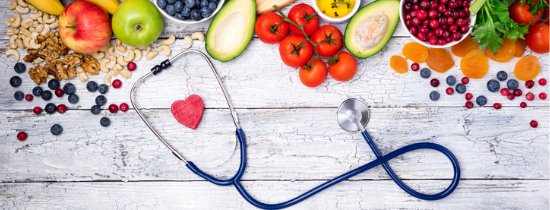Presently, the 2005 UNMC School of Medication graduate is ensuring future doctors both comprehend — and can make their own — good dieting propensities.
"Food and nourishment are one of the structure blocks for wellbeing," said Dr. Evans, associate teacher in UNMC's Branch of Family Medication. "We're not — as a populace — eating a sound eating regimen, and as clinical understudies and doctors we're generally not instructed as much sustenance.
"However, dietary variables are the greatest gamble factor for grimness and sickness so getting some information about nutrition is significant. On the off chance that we know how to eat and set up a solid eating regimen, we're more probable, and more sure, in asking and guiding our patients on sustenance."
That's what to do, Dr. Evans satisfied a very long term dream to cooperate with Metropolitan Junior college's Foundation for Culinary Expressions and make an elective, four-hour culinary medication course for UNMC's fourth-year clinical understudies.
"Understudies love the cooking class," which is upheld by The Ruler Asset to sustain better way of life decisions, she said.
Drug understudies head out 4.5 miles to MCC to learn both the underpinning of a sound Mediterranean eating routine and central blade abilities, prior to preparing an exemplary citrus vinaigrette or a salmon, spinach and quinoa salad.
The culinary medication class is the good to beat all nourishment educational program that mirrors public patterns to reinforce sustenance instruction for clinical understudies. Through the endeavors of an interprofessional group including fundamental science, nourishment and clinical staff, sustenance content has been incorporated across the initial three years of clinical preparation.
Time and again, nourishing messages are confounding, Dr. Evans said. To keep it straightforward, she advocates for diet quality over diet type, and that implies eating genuine food varieties — natural products or vegetables, new or frozen; sound proteins; entire grains; nuts; seeds; olive oils and other solid fats. She suggests keeping away from handled food sources, keeping a food diary to stay away from thoughtless eating, and adding high-fiber food varieties to one's eating regimen.
Nourishment is genuinely a collaboration, Dr. Evans said, and recognizes that sound way of life decisions are affected by cost hindrances, social convictions and one's admittance to transportation and protection. "The more we know, as doctors, the more we can work with dietitians and build up the job of nourishment."
The objective is straightforward, she said: "I might want to see a greater amount of us carrying on with a solid way of life and having discussions with our patients since they think we are a dependable wellspring of information on nourishment."

Post a Comment